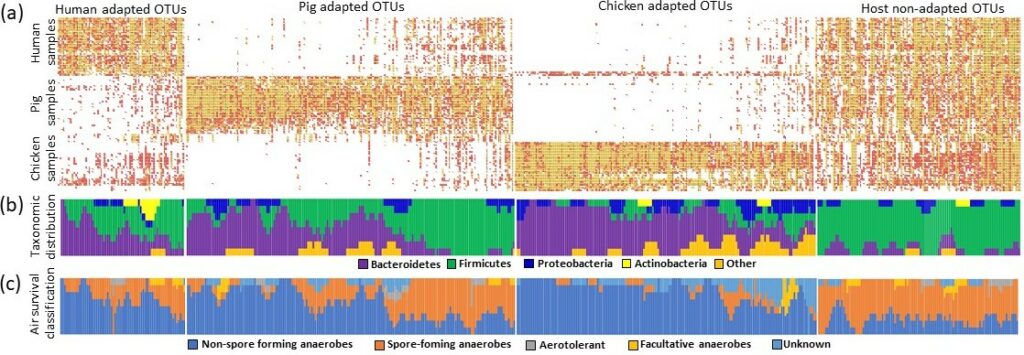A new paper on the development of litter microbiota in chicken production has been accepted in the Applied and Environmental Microbiology in which we describe a time-dependent development. Escherichia coli, Staphylococcus saprophyticus, and Weissella jogaejeotgali were characteristic of fresh litter during the first month of production. Corynebacterium casei and Lactobacilli dominated in a 2-month-old litter, Brevibacterium, Brachybacterium, and Sphingobacterium were characteristic for 3-month-old litter, and Salinococcus, Dietzia, Yaniella, and Staphylococcus lentus were common in a 4-month-old litter. Identification of the species present in the litter opens the possibility for active manipulation of litter microbiota, something what we are already working on.

